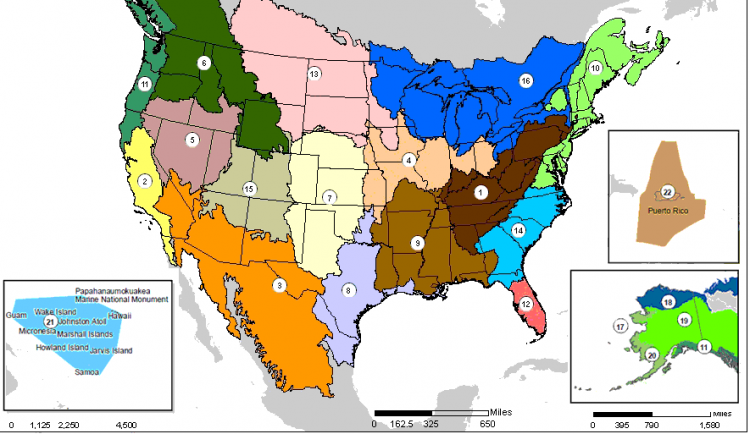From August 12–14, seven of the U.S. Fish and Wildlife-led Landscape Conservation Cooperatives (LCCs) convened a workshop in Memphis, Tennessee, to improve the allocation of wildlife management actions throughout the Mississippi River Basin in a way that reduces nutrient loading and hypoxia in the Gulf of Mexico, while balancing agricultural interests and supporting terrestrial and aquatic wildlife populations. This was achieved through a structured decision-making process.

The Mississippi River Basin/Gulf Hypoxia Landscape Conservation Design Implementation and Model Refinement Workshop, led by the Eastern Tallgrass Prairie & Big Rivers (ETPBR) LCC in partnership with six other LCCs encompassing the Mississippi, Missouri, and Ohio River basins, brought decision makers and on-the-ground technical experts together to assess policy and program level decisions and strategies to address Mississippi River nutrient load reduction in support of hypoxia mitigation in the Gulf. This effort complements the Gulf of Mexico Hypoxia Task Force, Mississippi River Basin Initiative, and state nutrient reduction initiatives, with added emphasis on ecological and social values of wildlife habitat, establishing corridors for wildlife adaptation to climate change, and enhancing organizational capacity to adopt these practices in the most effective configurations and locations.
NOAA sits on the steering committees of the seven participating LCCs, and will play a major role developing and implementing nutrient load reduction strategies.
For more information, contact Alan.Lewitus@noaa.gov.
